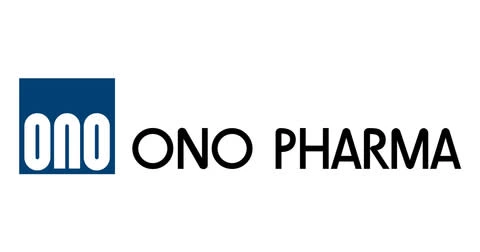
FDA Grants Full Approval to Deciphera’s ROMVIMZA™ (vimseltinib) for Symptomatic TGCT
Ono Pharmaceutical Co., Ltd. has announced that the U.S. Food and Drug Administration (FDA) has granted full approval for ROMVIMZA™ (vimseltinib), a kinase inhibitor, for the treatment of adult patients with symptomatic tenosynovial giant cell tumor (TGCT). This approval specifically applies to cases where surgical resection may lead to worsening functional limitations or severe morbidity. The approval follows the Fast Track designation and Priority Review granted to ROMVIMZA by the FDA, a drug developed by Deciphera Pharmaceuticals, Inc., a subsidiary of Ono.
Dr. Hans Gelderblom, Chair of the Department of Medical Oncology at Leiden University Medical Center and the lead author of the study, commented, “The approval of ROMVIMZA provides a new, much-needed, well-tolerated, and effective treatment option for people suffering from TGCT.” He emphasized that TGCT significantly impacts patients’ lives by causing pain, limited mobility, and stiffness. The MOTION Phase 3 study demonstrated ROMVIMZA’s ability to shrink tumors and its success in improving important quality-of-life measures without causing liver injury, which is often seen with other TGCT treatments. “ROMVIMZA is a differentiated treatment that can address the significant unmet needs of the TGCT community,” he added.
Ryota Udagawa, President and CEO of Deciphera Pharmaceuticals, expressed his excitement over the approval. “This is a crucial advancement for the TGCT community. We believe ROMVIMZA has the potential to become the new standard of care for patients with TGCT for whom surgery might cause worsening functional limitations or severe morbidity.” He also noted that this milestone marks the second approved therapy discovered using Deciphera’s proprietary switch-control kinase inhibitor platform.

TGCT is a rare, non-malignant tumor that typically forms near or within joints. It results from a dysregulation of the CSF1 gene, leading to an overproduction of CSF1. Left untreated, or in cases of recurrent tumors, TGCT can cause joint damage and degeneration, leading to significant disability.
The FDA approval is based on the results of the pivotal Phase 3 MOTION study, which evaluated ROMVIMZA in patients with TGCT who were not candidates for surgery and had not previously received anti-CSF1/CSF1R therapy. In this study, ROMVIMZA showed a statistically significant and clinically meaningful objective response rate (ORR) at Week 25. This was assessed by blinded independent radiologic review (IRR) using the Response Evaluation Criteria in Solid Tumors (RECIST v1.1). The ORR for the ROMVIMZA arm was 40%, compared to 0% for the placebo arm (p < 0.0001). Additionally, patients in the ROMVIMZA arm showed significant improvements in active range of motion, physical functioning, and pain, compared to the placebo arm at Week 25.
ROMVIMZA’s safety profile was found to be manageable and consistent with results from previous Phase 1/2 trials, with no unexpected adverse events. The most common adverse events observed in the study were mild to moderate in nature and resolved or were resolving.
Deciphera Pharmaceuticals plans to make ROMVIMZA commercially available in the U.S. starting next week. The company is also in the process of seeking marketing authorization for ROMVIMZA in Europe, with the European Medicines Agency (EMA) currently reviewing a Marketing Authorization Application (MAA) submitted in July 2024.
In addition, Deciphera is committed to helping patients access ROMVIMZA through the Deciphera AccessPoint™ program, which offers comprehensive access and financial assistance to eligible patients. For more information, patients can visit DecipheraAccessPoint.com or call the support hotline at 1-833-4DACCES (1-833-432-2237), available Monday through Friday, from 8:00 AM to 8:00 PM Eastern Time.
About the MOTION Study
The MOTION study is a Phase 3, randomized, double-blind, placebo-controlled clinical trial designed to evaluate the efficacy and safety of vimseltinib in patients with TGCT who are not amenable to surgery and have not received prior anti-CSF1/CSF1R therapy. The study’s primary endpoint was the objective response rate (ORR) at Week 25, as assessed by blinded independent radiologic review. Secondary endpoints included improvements in tumor volume, active range of motion, physical function, stiffness, quality of life, and pain, all assessed at Week 25.
The study was conducted in two parts. Part 1 randomized patients to receive either vimseltinib or placebo for 24 weeks. In Part 2, patients who initially received placebo were given the option to switch to vimseltinib, and all patients received vimseltinib in an open-label setting for the long-term duration of the study.




